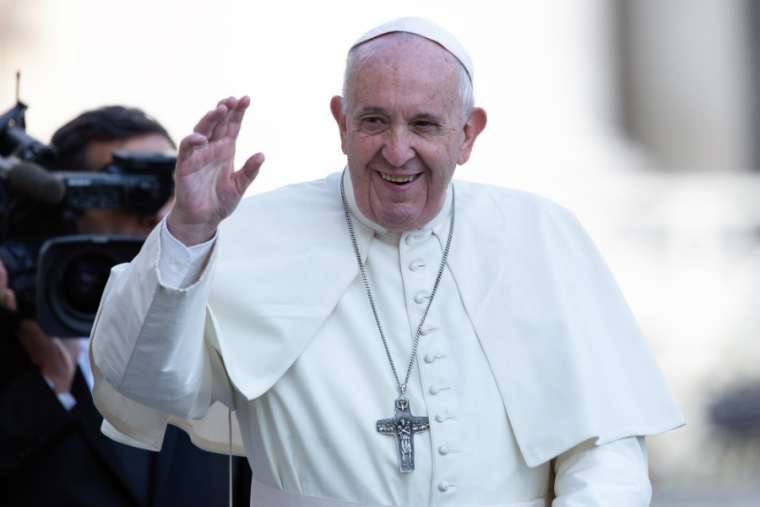Pope Francis on Sunday said he wanted to make his postponed visit to South Sudan in 2020, and he urged the country’s leaders to overcome their divisions.
The pontiff also urged the leaders to bring an end to the suffering of its people.
Francis spoke of the crisis in the country three days after its president and a former rebel leader agreed to delay forming a unity government for 100 days beyond the Nov. 12 deadline, which itself was an extension of an original deadline last May.
Speaking at his weekly blessing in St. Peter’s Square, Francis said he “will have to visit” South Sudan in 2020.
A trip by Francis to South Sudan, which is predominantly Christian, had been tentatively scheduled for 2017 but had to be canceled because of political instability and poor security.
“I want to renew my invitation to all sides in the national political process to seek what unites them and overcome what divides, in a spirit of true brotherhood,” Francis said.
April 2018, a month before the original deadline, the pope brought South Sudanese President Salva Kiir, opposition leader Riek Machar and other politicians to the Vatican for a retreat.
In a dramatic gesture on the last day of the retreat, Francis knelt at the feet of the previously warring leaders as he urged them not to return to a civil war that ended with a shaky peace deal in 2018.
Referring to the civil war in his lengthy appeal on Sunday, Francis said the people of South Sudan had “suffered too much in recent years… (and are) waiting for the definitive end of conflicts and lasting peace”.
The five-year conflict killed an estimated 400,000 people, triggered a famine and created Africa’s biggest refugee crisis since the 1994 genocide in Rwanda.
The pope wants to make the trip with Archbishop of Canterbury Justin Welby, head of the worldwide Anglican Communion, and Presbyterian Church leaders from Africa in an effort to promote unity in South Sudan.
Sudan, which is predominantly Muslim, and the mainly Christian south fought for decades before South Sudan became independent in 2011.




 Premier League
Premier League